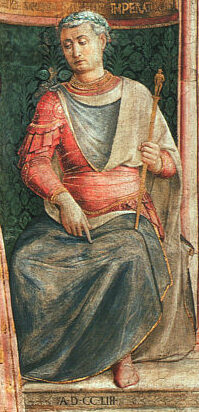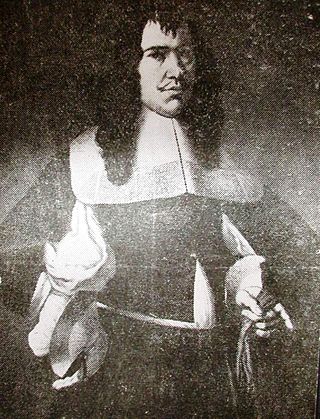 | |
| Gender | Male |
|---|---|
| Language(s) | Latin |
| Origin | |
| Meaning | "From Laurentum", or "Laurelled"[ citation needed ] ; "bright one, shining one" |
| Region of origin | Italy |
| Other names | |
| Related names | Llorente\Lorente (Aragonese-Spain), Laurens (Dutch, English), Lorenz (German), Lenz (German),Lorenzo (Italian,Castilian-Spain), Laurent (French), Laurențiu (Romanian), Lourenço (Portuguese), Laurence, Lawrence (English), Lavrentiy (Russian), Lars, Lasse, Lassi (Swedish, Finnish), Lorik (Albanian), Lorenc Laura, Larry (English pet form of Lawrence or Laurence) |
Laurentius is a Latin given name and surname that means "From Laurentum " (a city near Rome). It is possible that the place name Laurentum is derived from the Latin laurus ("laurel"). People with the name include:
Contents
In Early Christianity:
- Lawrence of Rome, Saint Laurentius of Rome (died 258), Italian deacon and saint, born in Spain
In Catholicism:
- Antipope Laurentius (r. 498–506), antipope of the Roman Catholic Church
- Laurence of Canterbury, archbishop of Canterbury known as Saint Laurentius
- Lárentíus Kálfsson (1267–1331), bishop of Hólar, Iceland, 1324–1331
- Laurentius Abstemius, Italian writer, Professor of Belles Lettres at Urbino, and Librarian to Duke Guido Ubaldo under Pope Alexander VI
- Laurentia McLachlan, Benedictian nun, Great Britain, 1866–1953
In Byzantium:
- Joannes Laurentius Lydus, Byzantine writer on antiquarian subjects
In Poland:
- Wawrzyniec Grzymała Goślicki, Laurentius Grimaldius Gosliscius, (1530–1607), Polish bishop, political thinker and philosopher best known for his book De optimo senatore
In Lutheranism:
- Laurentius Andreae, Swedish clergyman and scholar
- Laurentius Paulinus Gothus (1565–1646), Swedish theologian, astronomer and Archbishop of Uppsala
- Laurentius Petri (1499–1573), Swedish clergyman and the first Evangelical Lutheran Archbishop of Sweden
- Laurentius Petri Gothus, the second Swedish Lutheran Archbishop of Uppsala, Sweden
- Paul Laurentius (1554–1624), Lutheran divine
- Laurentius Christophori Hornæus, minister and witch hunter in Torsåker and Ytterlännäs, Sweden
In other fields:
- Henrik Laurentius Helliesen, Norwegian Minister of Finance in several periods between 1863 and 1883
- Laurentius (weevil), a beetle genus in the tribe Apostasimerini
- Laurentius "Lou" van den Dries, Dutch mathematician






